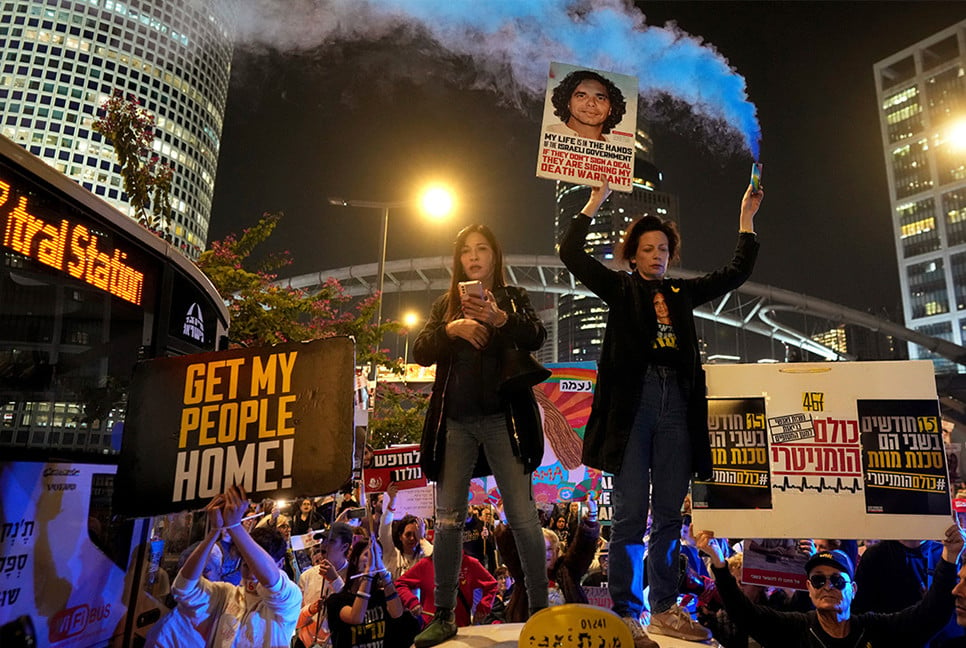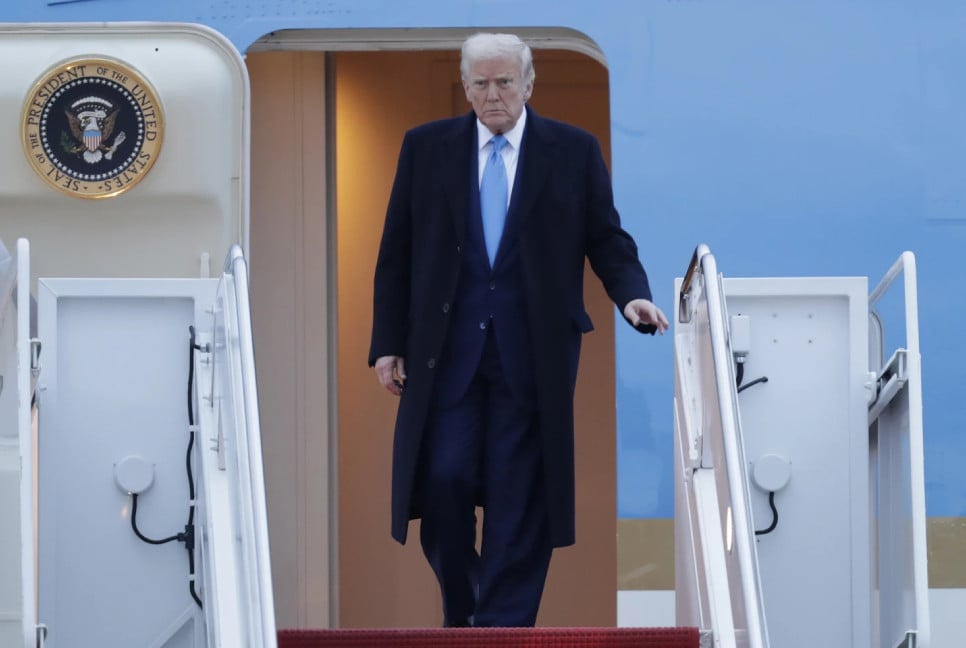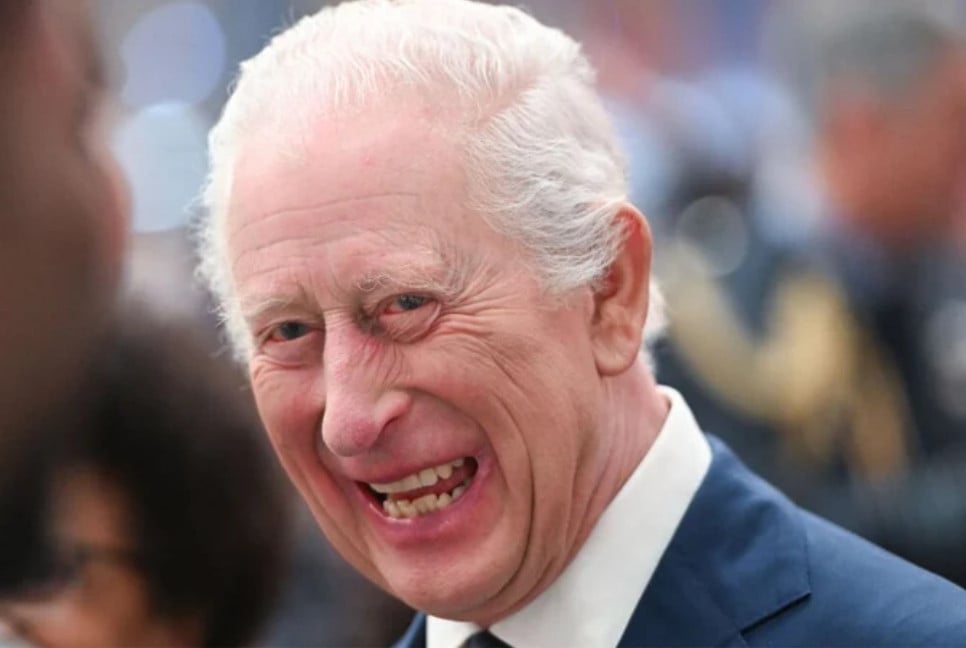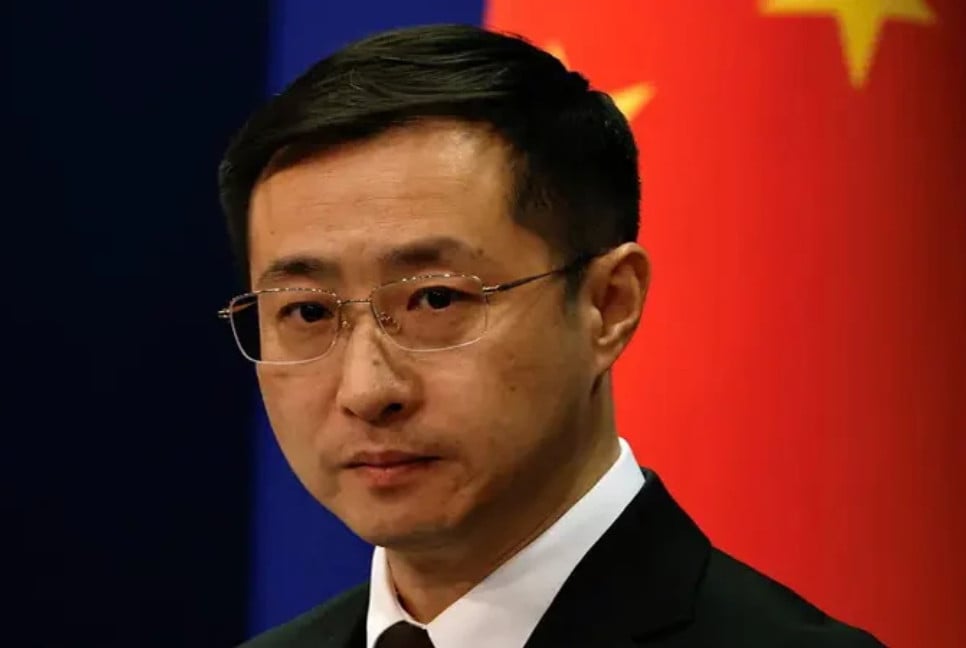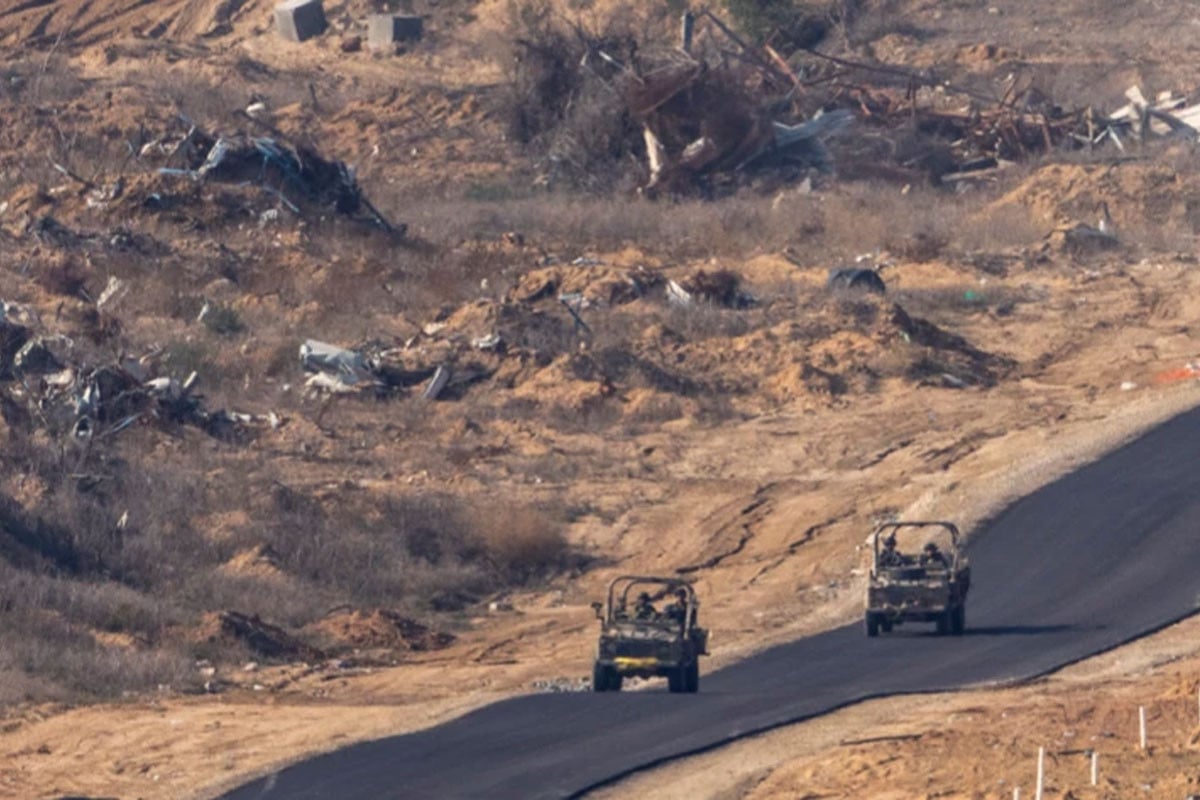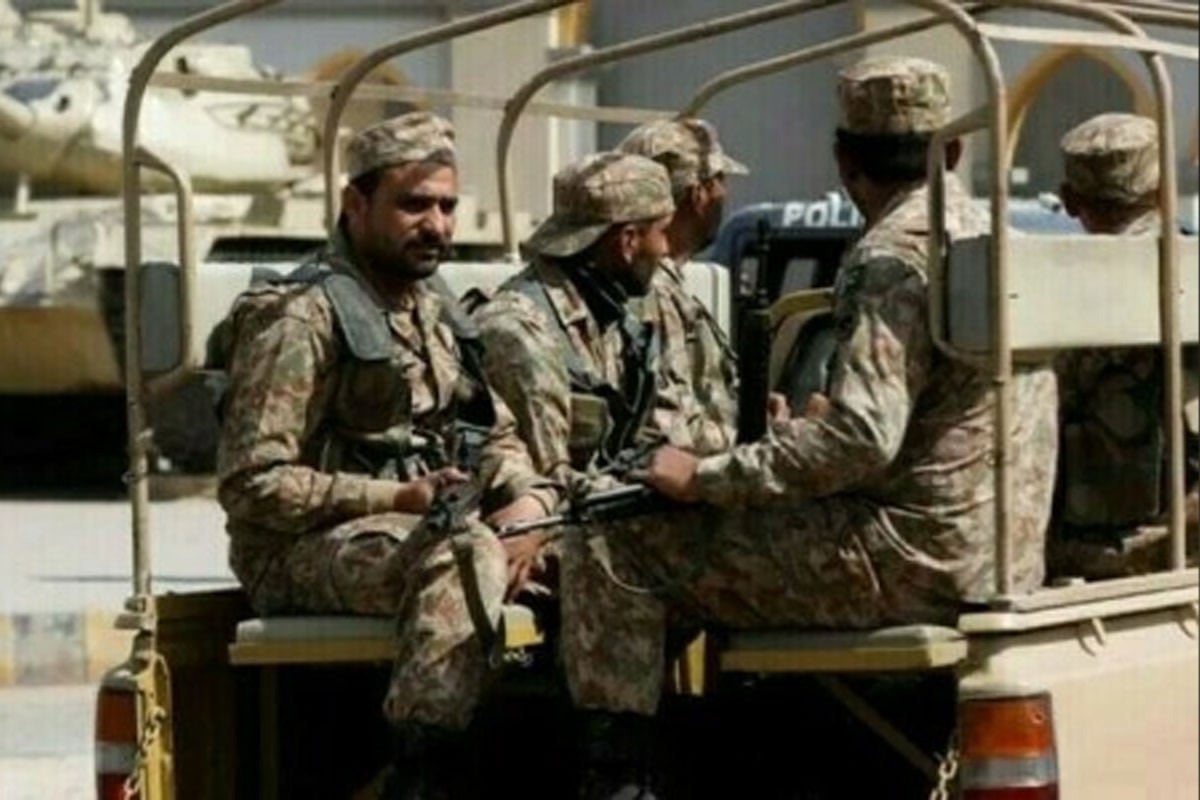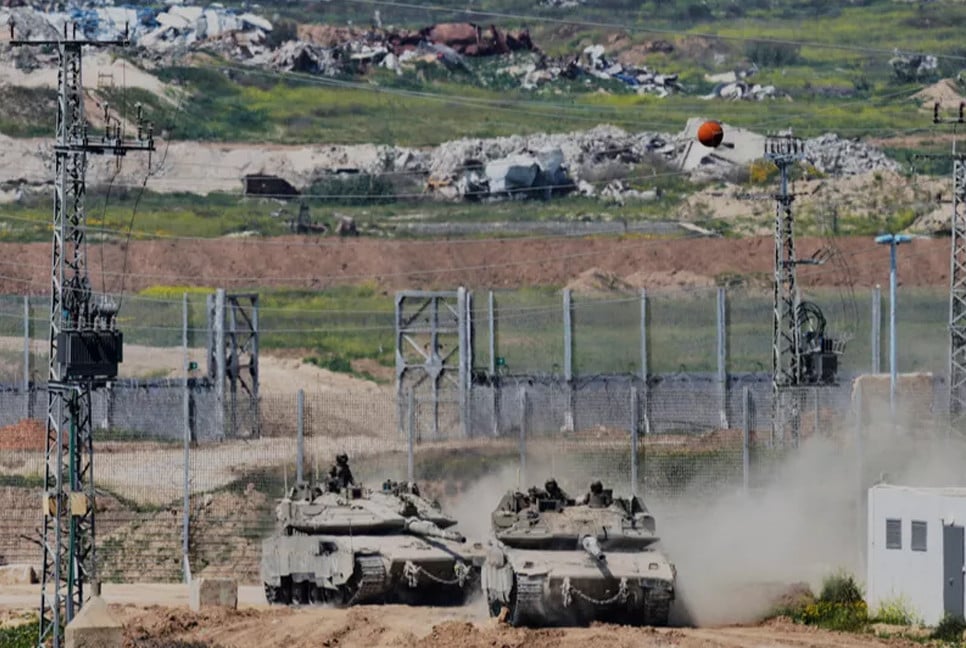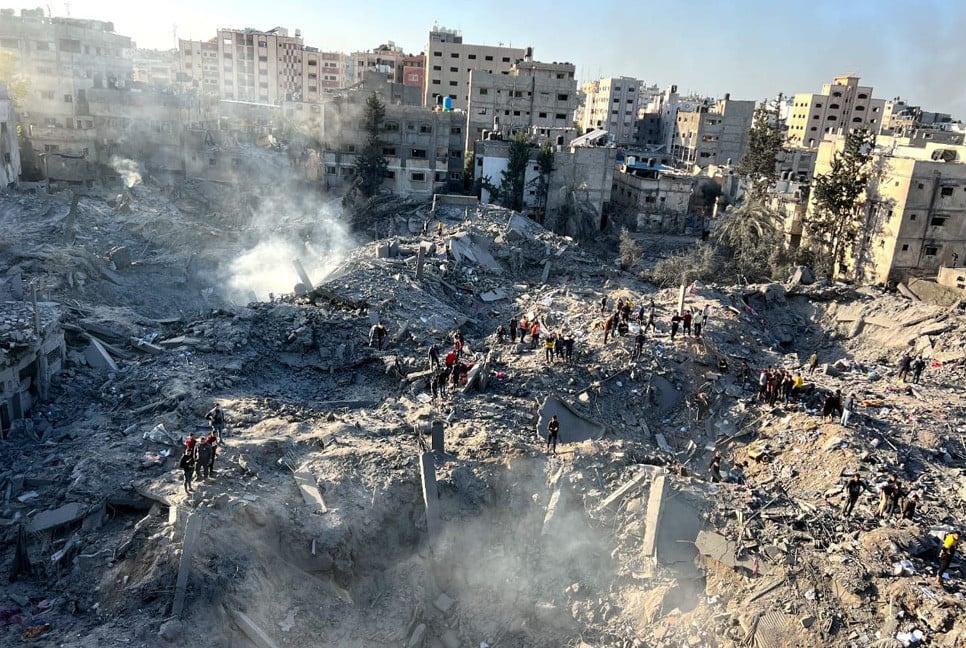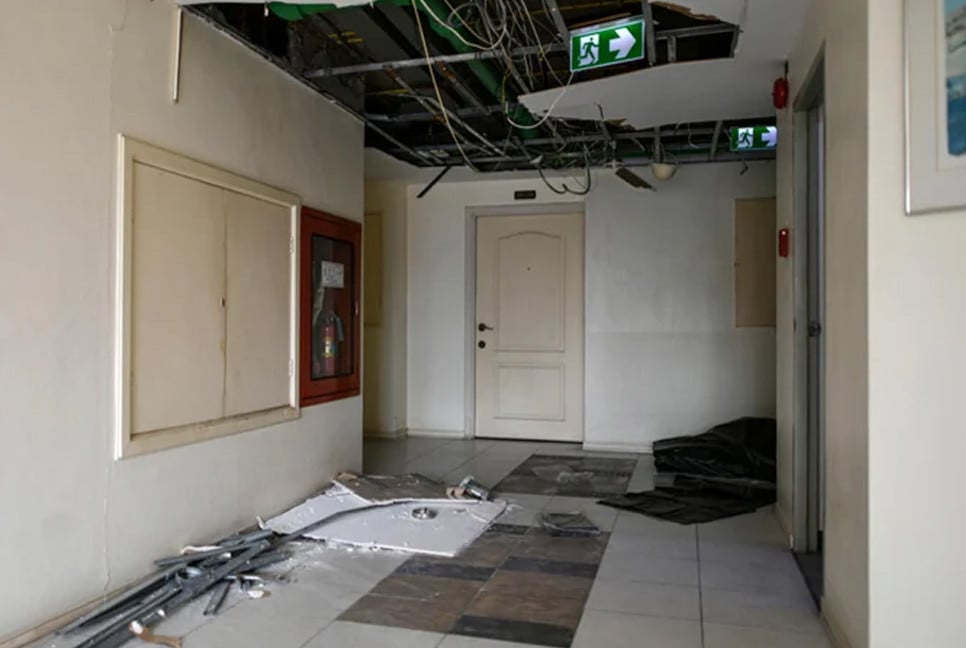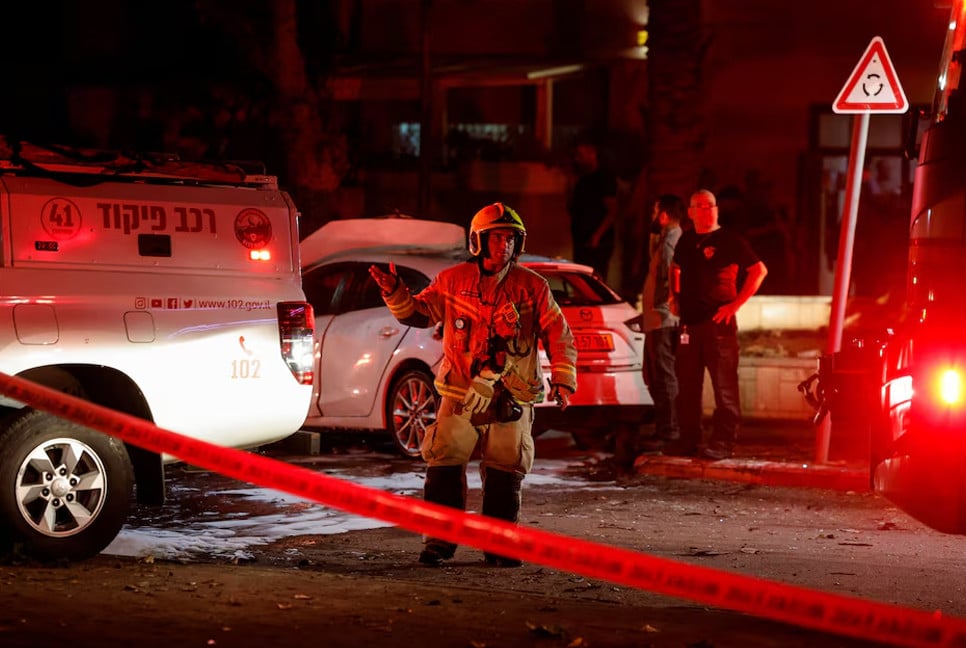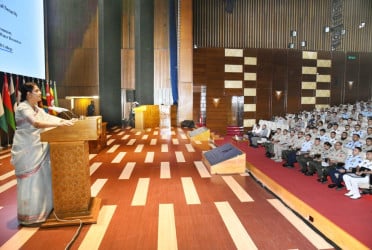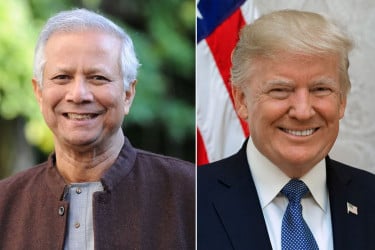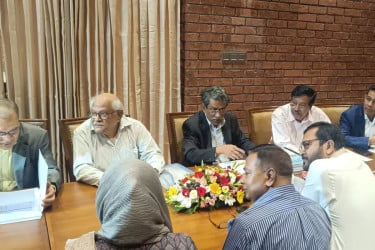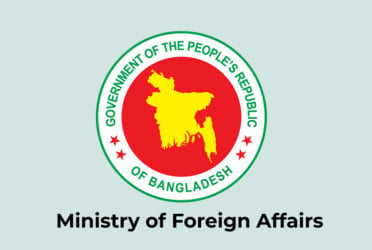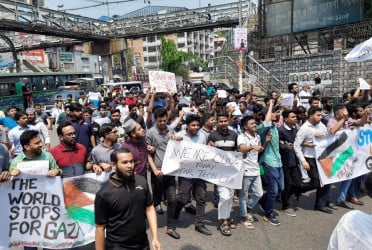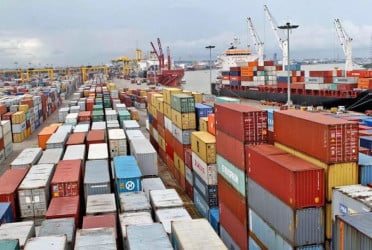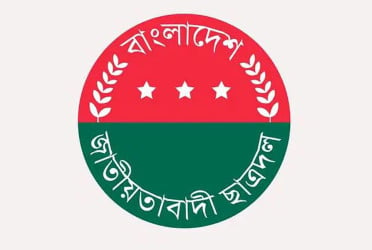Mediator of Israel-Hamas truce Qatar announced that Israel and Hamas have reached an agreement to halt the war in Gaza and exchange Israeli captives for Palestinian prisoners held in Israeli jails.
Qatar’s Prime Minister Sheikh Mohammed bin Abdulrahman bin Jassim Al Thani announced the agreement in Doha on Wednesday. He said the ceasefire would take effect on Sunday, January 19.
The deal will lead to the release of Israeli captives and Palestinian prisoners and a surge in humanitarian aid to Gaza, Sheikh Mohammed said.
At least 46,707 people in Gaza have been killed in Israel’s war on Gaza, according to Palestinian health authorities. Israel launched the devastating assault in response to the Hamas-led attack on southern Israel on October 7, 2023, in which at least 1,139 people were killed, according to Israeli statistics, and approximately 250 others seized as captives.
US President Joe Biden
“Fighting in Gaza will stop, and soon the hostages return home to their families,” President Biden said at the White House.
He said the deal would bring Palestinians a “credible pathway to a state of their own”, harking to “a future of normalisation” for the region, with the “integration of Israel and all its Arab neighbours, including Saudi Arabia”.
US President-elect Donald Trump
“We have a deal for the hostages in the Middle East. They will be released shortly. Thank you!” Trump wrote on his social media platform Truth Social.
“With this deal in place, my National Security team, through the efforts of Special Envoy to the Middle East, Steve Witkoff, will continue to work closely with Israel and our Allies to make sure Gaza NEVER again becomes a terrorist safe haven,” Trump said in a second post.
UN Secretary-General Antonio Guterres
Guterres told reporters that the UN was ready to back the deal and “scale up the delivery of sustained humanitarian relief to the countless Palestinians who continue to suffer”.
Turkish Foreign Minister Hakan Fidan
Fidan told reporters in Ankara the ceasefire deal was an important step for regional stability. He also said that Turkish efforts for a two-state solution to the Israeli-Palestinian conflict would continue.
Qatar’s Prime Minister Sheikh Mohammed bin Abdulrahman Al Thani
The prime minister called for calm in the Gaza Strip between now and 19 January, when the ceasefire deal takes effect.
In a post on X, he said the deal was “merely a step forward”, adding “we will continue to work until all terms of the agreement are applied, until we have achieved peace & are able to turn the last page of war”.
Mohammad Bagher Ghalibaf, speaker of Iran’s Parliament
Ghalibaf said in a post on X that “the courageous Palestinian resistance” had prevented the “Zionist entity” from achieving its “strategic goals”. He said that the world should “punish” the “criminal regime” and “heal the wounds of the Palestinian people”.
Saudi Arabia’s Foreign Ministry
The ministry urged commitment “to end the Israeli aggression on Gaza” and “the complete withdrawal of Israeli forces from the strip and all Palestinian and Arab lands …”
United Arab Emirates Foreign Minister Sheikh Abdullah bin Zayed bin Sultan Al Nahyan
Al Nahyan stressed “the importance that both Israel and Hamas adhere to the commitments made to end the suffering of the Palestinian prisoners and Israeli hostages”.
Pakistan’s Foreign Ministry
The ministry issued a statement calling for the “immediate and full implementation” of the ceasefire deal, expressing hope that it would lead to a permanent end to hostilities. “Israel’s expansionist designs have destabilised the entire region,” it said.
Mohammed Abdulsalam, spokesperson for Yemen’s Houthis
“We salute Gaza’s legendary and historic resilience in the face of Israel’s fiercest aggression against the oppressed Palestinian people,” said Abdulsalam. “With its continued occupation of Palestine, [Israel] represents a threat to the security and stability of the region.”
South Africa
South Africa called for “a just and lasting peace that ensures the human rights of both Palestinians and Israelis are protected and promoted” after “15 months of Israel’s genocidal onslaught on Gaza”.
Ursula von der Leyen, European Commission president
Von der Leyen “warmly” welcomed news of the ceasefire agreement. She said that “hostages will be reunited with their loved ones and humanitarian aid can reach civilians in Gaza. This brings hope to an entire region, where people have endured immense suffering for far too long. Both parties must fully implement this agreement, as a stepping stone toward lasting stability in the region and a diplomatic resolution of the conflict.”
Alexander De Croo, Belgium’s prime minister
De Croo said that “we feel tremendous relief for the hostages” after many months of conflict. “Let’s hope this ceasefire will put an end to the fighting and mark the beginning of a sustained peace. Belgium stands ready to help,” he said.
German Foreign Minister Annalena Baerbock
Baerbock said that “in these hours there is hope that the hostages will finally be released and the deaths in Gaza will come to an end. Everyone who bears responsibility should now ensure that this opportunity is seized.”
Britain’s Prime Minister Keir Starmer
“After months of devastating bloodshed and countless lives lost, this is the long-overdue news that the Israeli and Palestinian people have desperately been waiting for,” Starmer said in an emailed statement.
Spain’s Prime Minister Pedro Sanchez
“This agreement is crucial to achieving regional stability. It represents an indispensable step on the road to a two-state solution and a just peace that respects international law.”
Norway’s Prime Minister Jonas Gahr Stoere
Gahr Stoere insisted on the need to strengthen Palestinian institutions in order to “assume full control and responsibility, including in Gaza”.
“Both Israel and Palestine must receive credible security guarantees, and the solution must be anchored regionally,” he said.
Australia’s Prime Minister Anthony Albanese
Albanese said he hoped the deal would “mark the beginning of a new chapter for the Israeli and Palestinian people”, allowing the latter “the opportunity to rebuild” and “reform their governance which is most necessary, and pursue self-determination”.
He stressed there should be “no role for Hamas in the future governance of Gaza”.
Mirjana Spoljaric, president of the International Committee of the Red Cross
“While the agreement is welcome, it is not the end,” said Spoljaric. “Civilian lives must be protected and their needs prioritised. The coming days are critical and we are counting on the parties to hold to their commitments.”
Source: Al Jazeera
Bd-pratidin English/Lutful Hoque

